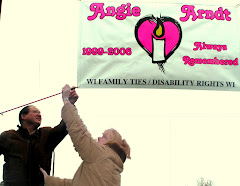Jo Pelishek, guest columnist
August 11, 2007
I was in Minneapolis last week when the bridge collapsed. My son and daughter-in-law were on a parallel bridge at the time, having decided at the last minute not to take the 35W crossing. They heard the blasting sirens, saw the first responders en route.
We were all shaken, knowing what might have been. It was a week we will never forget.
I was impressed with how quickly the city pulled together. Bystanders, neighbors, firefighters, police, hospitals, churches -- all responded to the needs of victims and families.
Engineers planned inspections of similar structures, and then of all bridges in the metro area. Before long we heard that bridge inspections were happening all over the state and across the nation in an effort to avoid future injury and death.
Within hours of the collapse, northeast Minneapolis was transformed with roadblocks and alternate routes in place. It was amazing.
There was a true sense of community, people instinctively working together -- people who believed a bridge collapse was unacceptable and everything possible must be done to avoid a repeat situation, people awakened to action, people moved because so many children were involved.
Statements were given by community leaders, department heads, neighbors, affected families -- the mayor, governor, even the president. Action did not hinge on forming committees, scheduling meetings or planning forums to discuss the problems. No doubt those things will follow, but they were not priorities.
I couldn't help but think of Angellika Arndt, who died from a deadly restraint hold at Northwest Counseling and Guidance Clinic in Rice Lake, Wis., in May 2006 when a system -- designed to offer therapy to at-risk children -- failed.
She was not the first to be hurt by collapsed service systems for children's mental health, nor was she the last. Since Angie's death, other families have described similar abuse in our children's mental health systems, not only in Rice Lake but across the state.
I had to wonder why it's so hard for Wisconsin to mobilize despite evidence of broken programs, children being abused or not served at all -- the collapse of systems that should be helping them. Minnesota immediately began to inspect all bridges, local and around the state. Why are we not inspecting all programs, starting with those where abuse has been reported?
Minneapolis set up crisis centers for victims and families. My children, and many others with mental illness, have been on county lists for over four years, waiting to access help.
Where are the standards for inspection of program foundations, and where the inspectors? Where are the roadblocks or safeguards that would eliminate -- immediately -- continued use of harmful seclusion and restraint techniques? As committees debate the issue, some children continue to be criminalized for having mental illness -- treated poorly, or even incarcerated.
Minneapolis residents are wondering, "What if I had been on that bridge?" In Wisconsin, we should be asking, "What if that was my child?"
Minneapolis had an alternate freeway route in place in a matter of hours. What are the alternatives for our children who experience crisis through no fault of their own? And where are the finances to fund a recovery program?
And where, I wonder, is the community -- local and statewide -- that could be pulling together, supporting our children and their families? A vast majority continue to be unaware of the situation. Others have given up. Some are planning meetings and summits. And some, like myself, continue to blast the sirens, hoping responders will take action.
Jo Pelishek is a writer and family advocate for Wisconsin Family Ties, a statewide, nonprofit organization that supports families who have children with emotional, behavioral and mental health issues. Pelishek and her husband have three teens at home, two of whom have mental health challenges. For more information, contact the Wisconsin Family Ties office in Madison at 267-6888.
http://www.madison.com/tct/opinion/column/205190
_____________________________________________
“In order to effect change, we must
first recognize the need for change”
- Isabelle Zehnder
The State of Wisconsin has been hit with a tragedy that, in my opinion, needs to be reviewed and discussed. Changes need to be made. New laws need to be enacted. Why? Because a little girl lost her life at the age of 7 and if things don’t change, others will follow. This was a senseless and needless death that occurred at the hands of those who were supposed to be trained to help her. Not end her life.
Her name was Angellika “Angie” Arndt and she was a beautiful little girl. Her life was cut short because of inadequate staff training and the use of good old common sense. Angie was placed into a dangerous face-down prone restraint position and held down by a man nearly 5 times her body weight for nearly 50 minutes. The weight of his body on her upper torso caused her death. The day before she died she was reprimanded for blowing bubbles in her milk and laughing during lunchtime. Her punishment was being held down in the same face-down prone restraint position for 98 minutes.
Click here for The Short Life of Angellika Arndt: Bubbles in My Milk
Tuesday, August 28, 2007
Pelishek: Our systems collapse, and our children suffer
Subscribe to:
Post Comments (Atom)






No comments:
Post a Comment